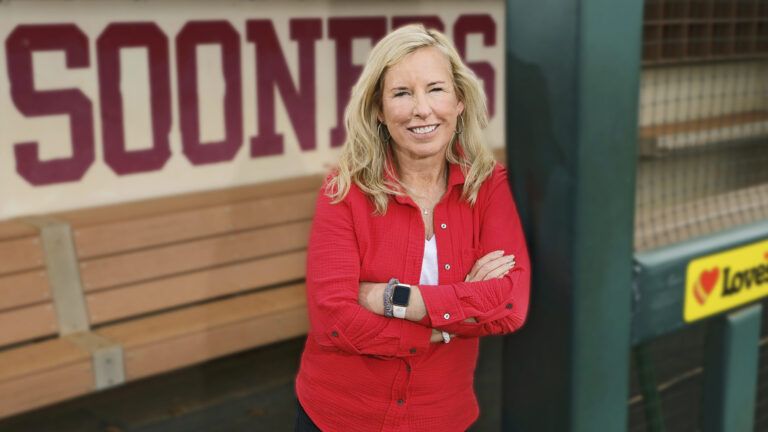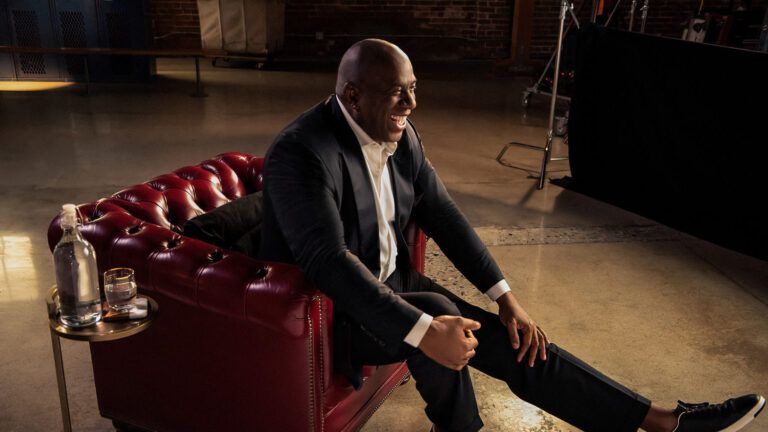When I was pitching in the major leagues I was known as "Knucksie," because I threw a knuckleball. You don't actually throw a knuckleball with your knuckles.
But that's just one of the many strange things about the pitch. Few pitchers can consistently control it, and fewer still can make a living throwing it.
Yet that's exactly what my brother Joe and I both did. We credit our dad. He's the one who taught me the knuckler—and just about every important thing I know.
Dad was a coal miner in Lansing, Ohio. He was a star pitcher in the local semipro league, throwing serious heat for his Polish lodge and earning the nickname "The Big Bear" because of his massive frame and oaken shoulders.
In his youth Dad could have thrown a grape through a brick wall. He was a local legend, and he quietly dreamed of escaping the backbreaking grind of mining for the glories of major league ball.
That dream came to a disappointing end one cold spring day when Dad, rushing from his shift at the mine and failing to warm up properly before a game, damaged his pitching arm permanently. Just like that, he lost a foot off his fastball.
He was about to hang it up when another miner showed him a pitch that didn't put a lot of strain on his sore arm. Dad became a knuckleballer. And though he never made it to the pros on his knuckler, he did show me how to throw it as soon as I was old enough.
"Son," he said late one afternoon when he got home from the mine, picking up the frayed baseball I was playing with in the yard, "you hold it like this." Coal dust speckled his massive right hand. At age 10, I could hardly imagine my hands ever being that big.
Cupping the ball in his creased palm, and arching his index and middle fingers, he dug his fingernails into the horsehide, making it seem almost as if the ball were being thrown with his knuckles. "The knuckleball's secret," he said, "is that it don't spin. Watch."
I backed way up near our tomato patch and held out my old Dizzy Dean glove. Dad wound up, reared back and delivered.
Wow! The ball seemed to have a mind of its own, floating, dipping, appearing almost to shift gears and change speed along its jerky trajectory before plopping into the webbing of my mitt then bouncing back out onto the ground.
"That's the knuckler," Dad said.
It was a thing of beauty. As I learned later, the lack of spin on the ball makes it more susceptible to air resistance as it travels along. A spinning ball will cut through the resistance. A knuckler reacts to it, floating and bobbing.
It's no 90-mile-an-hour fastball, but it still moves at a pretty good clip. I could understand why batters went crazy trying to hit it, why catchers could hardly hold on to it. The catcher and announcer Bob Uecker once said, when asked the best way to catch a knuckleball, "Wait until it stops rolling and pick it up."
I became a knuckleballer. Nearly every night after dinner, while my mom and sister, Phyllis, did the dishes and little brother, Jo-Jo, watched us from the front porch, Dad schooled me in the art of pitching. Not just the knuckleball, but how to react in given situations—man on first, runners in scoring position, behind or ahead in the count. He taught me everything he had dreamed of putting to use in the majors himself.
It paid off. I graduated high school in 1957 and in 1958 the Milwaukee Braves sent a scout over to the house to talk to Dad about a contract. Dad drove a hard bargain. He wouldn't let me sign without a bonus, and the Braves finally agreed to give me $500. "Takes me a month in the mine to earn that kind of money," Dad said to me later with a satisfied smile.
Then he grew serious. "Baseball is more than just fun, Son. Remember, you want to earn your dollar. You got to work for it."
A few years later Jo-Jo, whom we called plain Joe now that he was grown, made it to pro ball as a pitcher. Dad couldn't have been prouder. Two sons in the big leagues.
Joe and I were fortunate enough to go on to have solid careers. In 1985 we found ourselves together playing for the New York Yankees. What's more, by mid-September I was approaching 300 career wins, a hall-of-fame milestone for a pitcher, and, more importantly, the team was in the thick of a pennant race.
There was one problem: Dad was in the hospital, terribly sick. All those hard years in the mine had exacted a price. He had already lost a leg. Now he had internal bleeding, blood clots in his lungs, pneumonia, everything.
When Mom called to tell us Dad had slipped into a coma, she was crying so hard she could hardly explain herself.
Joe and I hopped the first plane home. We got to the hospital just after Dad received the last rites. The Big Bear was skin and bones, his dulled eyes half open, and a tangle of tubes attached to him. Joe and I stayed with him three days and nights, talking to him. But if he heard us, he gave no sign.
The fourth morning I faced a decision. I was slated to pitch that night—my three hundredth career victory if I won. There was a lot of media interest and fan excitement. Only an elite handful of pitchers had ever reached that many victories.
The season was winding down, and who knew if I would be on the roster next year? At 46, I was a relic by baseball standards. I wanted to help the Yanks win the division and bag number 300. I wanted it for Dad.
Yet how could I leave The Big Bear's side when he was so near death? He would want me to play ball no matter what, I knew, but I needed to hear that from him. I leaned over the bed and explained the situation. "Dad," I finished, "I'm afraid I'll never see you again. What should I do? Can you hear me?"
No response. Nothing. Just the rhythmic beeping of a monitor. I closed my eyes tight and prayed, Please, Lord, let him answer me!
"Dad…"
"Look!" Joe cried. "He's moving his fingers!"
Dad's fingers twitched on the sheets.
"Do you want a pencil and paper?" I asked. "Blink your eyes once for yes, twice for no." Dad blinked slowly, once.
Joe dug around in his bag and came up with a pad and pencil. Carefully we put them in Dad's hands. Very slowly he formed letters. After a few painstaking minutes, the pencil fell from his fingers. He had written: "WIN…HAPPY."
The effort had exhausted him, but Joe and I knew what we had to do. We caught the next flight back to New York, just in time for me to take the mound at Yankee Stadium. In my back pocket I had Dad's scrawled message. Nothing was going to stop me from winning number 300.
Nothing except the knuckleball.
I just didn't have a good pitch that night. As they say, my knuckler wasn't knuckling. Four games later, on my next start, I failed again to win number 300. On October 2 I got another no decision. Something had gone out of my knuckler. I wasn't getting batters out with it.
Between starts I rushed back to Dad's bedside. He was still in a coma. He hadn't responded to anyone since that day he wrote the note. I promised him I would give it one more try.
On October 6 I made my last start of the season, in Toronto against the Blue Jays. They had already beaten us out for the division title. It would be my last shot at 300 that year, perhaps forever. I made a hard decision. I laid off the knuckleball.
All through the game I fired fastballs, sliders, curves, change-ups. But I stayed away from the knuckler. I couldn't chance it anymore. They had the game on the radio for Dad in his hospital room. I wondered if he could hear the announcers talking about my not throwing the knuckler. It would mystify him.
By the bottom of the ninth inning I was pitching a shutout. Even the Blue Jays faithful were cheering me on. But it felt strange without the knuckler. Despite the cool, brisk breeze, perspiration dampened the sweatband on my cap. One out stood between me and number 300. I reared back and threw a fastball. The batter hit a rope to right center for a double.
Manager Billy Martin perched nervously on the top dugout step. I got two quick strikes on the next batter. One strike away. I called time, and my catcher, Butch Wynegar, trotted out to the mound.
"Whatya gonna throw, Knucksie?"
I paused. The answer was clear.
"Knuckler." Butch nodded and trotted back behind the plate.
If I was going to get that out I wanted to do it with a knuckler, Dad's pitch. I checked the runner on second then delivered to the plate. Strike three! My teammates mobbed me.
There was little time for celebration. Joe and I caught a plane back home soon after the game. We were dumbfounded to find Dad sitting up in bed, his eyes bright and clear. He had had a remarkable turnaround and the doctors were optimistic that he would recover.
Mom was beaming. "In the seventh inning," she related, still obviously stunned, "he suddenly looked over at me and said, 'Phil's pitchin' a heckuva game, ain't he?'"
I threw my arms around his shoulders. Then I handed him the game ball and thought about the day he taught me the knuckler. "This is yours, Dad." It was the least I could do, and the most.






